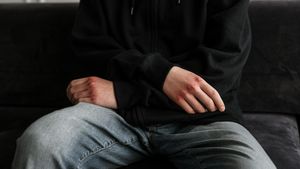On Saturday, February 1, 2025, the streets of Seoul became the backdrop for significant anti-corruption protests following the controversial arrest and subsequent detention of President Yoon Suk-yeol. These protests, which attracted various factions, represent not only dissent against presidential actions but also highlight deepening rifts within opposition groups.
The demonstrations took on diverse forms, as multiple leaders rallied their supporters across different parts of the city. Central to one faction was Jeon Kwang-hun, pastor of the Sarang First Church, alongside Shin Hye-sik, the head of the YouTube channel ‘Shin’s Insight,’ who spearheaded the Korea Restoration National Movement. Holding their rally at Gwanghwamun Square at 1 PM, they cited the need to restore principles they felt had been violated by the government's actions.
Further compounding the turbulence, members of the South Korea Young Men's Federation, represented by Bae Insu, convened at Anguk Station before marching to join the assembly at Gwanghwamun. Another significant gathering was organized by the Christian group Save Korea, which held simultaneous prayer vigils at various locations, including the National Assembly building, as part of their 'National Emergency Prayer Meeting’.
Interestingly, these separate gatherings are emblematic of the internal divisions within anti-Yoon groups. The protests come on the heels of President Yoon's arrest which has intensified existing conflicts among conservative factions. The claims of former allies now accusing one another of exploiting the situation for personal gain, such as accusations of 'coin hustling'—a colloquial term for making money through dubious means—have arisen.
Reportedly, tensions flared when criticism directed at the Gwanghwamun faction described their methods as ineffectual 'street theater' style protests, prompting detractors to seek alternative gatherings. Shin Hye-sik's fiery response on January 25, where he labeled the alternative gatherings as merely disruptive, suggests deep animosity brewing among the factions. He declared, "If you go to Yeouido, think of it as just chaos. I will completely ruin the Yeouido gathering,” intensifying the ideological and tactical divide among the protesters.
The dynamics took another turn when reports emerged of violent incidents at the protests. On January 30, as participants rallied near the Songdo Correctional Facility where Yoon was held, tensions escalated sharply. Historical instructor Jeon Han-gil attempted to speak but was shunned by the grouping at the gathering, exemplifying the fracture within their ranks. Accusations of inciting chaos were hurled back and forth among the leaders with Shin highlighting, “Some influencers instigated citizens for violence; they deserve prison,” thereby attempting to deflect blame.
The rifts have also attracted attention from political observers and commentators, prompting debates on cohesion within the anti-Yoon movement. Highlighting the chaos from last month's arrest of Yoon, several former allies have openly debated their effectiveness and commitment to their cause, concluding both sides are partially to blame for the current division. With participants shouting differing slogans, the fragmentation was evident as the groups failed to merge their efforts for greater impact.
The eventful day showcased not just dissent against Yoon's leadership but also the disarray of factions within those opposing him. Critics within the movement have pointed fingers over failures to influence real change and collective action, igniting infighting over claims of outright ineptitude or ulterior motives within their ranks. Such sentiments were echoed on various social media platforms where dissatisfied citizens sent warnings about 'leftist infiltrators', inciting even greater paranoia among the aforementioned groups.
While movements against Yoon claim to represent the will of the people, their internal disruptions mark challenges to their credibility. Future demonstrations and actions, as all involved stakeholders have surmised, will be marked by this intensified scrutiny over leadership, effectiveness, and unity among the different segments opposing Yoon's administration.
The atmosphere around these protests remains charged with potential change, yet the stark factionalism raises concerns about their ability to unify for common goals. It remains to be seen if these protests will yield substantial impact or if they will devolve purely to personal battles, overshadowing their intended message against perceived governmental corruption.



